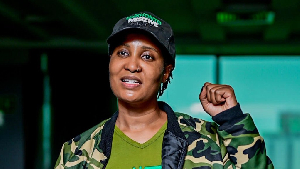Government’s inability to meet the set deadline for the migration from analogue to Digital Terrestrial Television is proving a costly setback for telecommunication companies hoping to bank on the yet-to-be released spectrum to boost quality of experience.
While the National Communications Authority (NCA) -- which is spearheading the migration -- insists it has covered much grounds in the migration process, the country will still miss out on the June 17, 2015 deadline.
The June deadline was set by the International Telecommunications Union (ITU) at the 2006 Geneva conference of which Ghana is a signatory.
The migration from analogue to digital will free up more spectrum for mobile telecoms to latch on to boost mainly their broadband services. Under the Geneva 2006 agreement, co-primary allocation in the band 694-790MHz has been reserved for mobile services.
Frequencies below 1GHz are ideal?for mobile, offering good geographic coverage, improved in-building coverage, reasonable capacity and availability in large blocks for efficient delivery of mobile broadband.
In an interview with the B&FT on the sidelines of a stakeholder workshop organised by Bizvis Africa Ltd and NGA Novum AB, Head of Research and Communications at the Ghana Telecoms Chamber, Derek Laryea said: “the spectrum to be realised following the switch-over from analogue to digital terrestrial television will be a key enabler for universal broadband access, bringing socio-economic benefits to the Ghanaian people in cities as well as rural and remote areas.”
Mr. Laryea said: “the economic benefits of licensing the Digital Dividend to mobile are far greater than allocating it to any other service and while telcos are excited about the regulator’s resolve to allocate co-primarily the band 694-790MHz for mobile services, they are also concerned about the timeliness of the migration.” NCA, industry regulator, is also expected to rake in millions of Ghana cedis in the auction of the freed up spectrum to mainly mobile telecom operators. Similar auctions in the US and Germany yielded US$19.1 billion and €3.57 billion euros respectively.
But commenting on the issue of the spectrum sale to mobile operators, Mr Laryea said Government should not look at generating excessive fees from the licensing of Digital Dividend spectrum, as this will artificially limit demand, negatively impact network deployment, increase consumer prices and limit the potential economic benefits. The Chinese government early 2015 approved the long-awaited loan facility agreement with the government of Ghana, paving the way for Ghana to complete its national digital terrestrial transmission project.
The loan financing agreement is not the only hurdle in the digital switchover efforts, as the main contractor and supplier of the digital terrestrial equipment, Star Communication Network Technology (StarTimes), stands by its promise to fully finish the main capital cities by July, 2015.
According to the ITU, any country that fails to meet the deadline will not receive any protection from the Union should any country interfere in its broadcasting space.
Ghana’s attempt at digitalising its broadcasting networks is estimated to cost the country about US$95million, and lack of funding for the time-bound project is causing uneasiness in government circles and among broadcasting firms and consumers.
Business News of Tuesday, 10 March 2015
Source: B&FT













